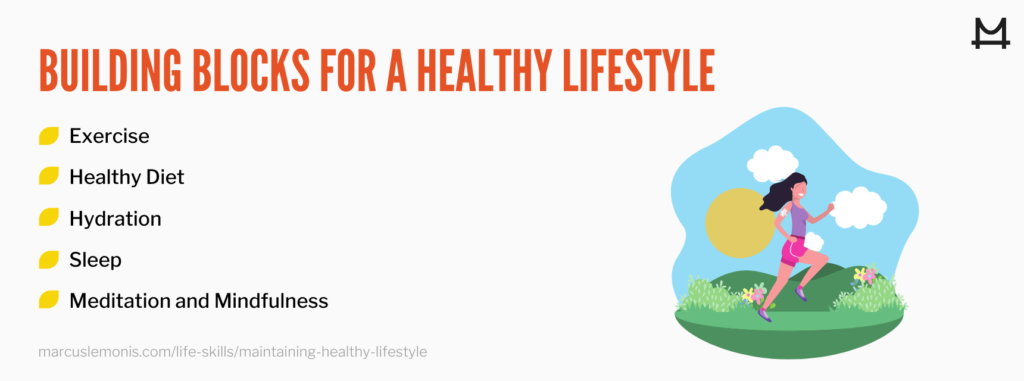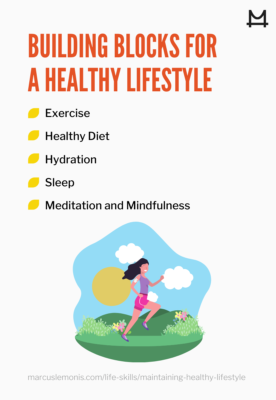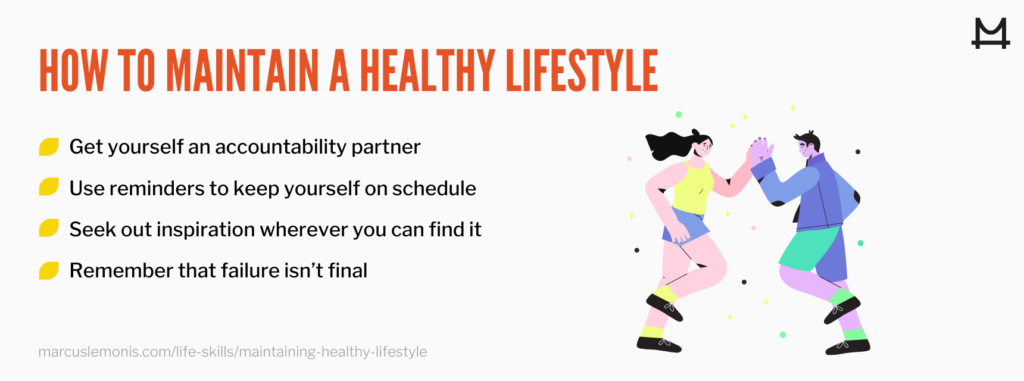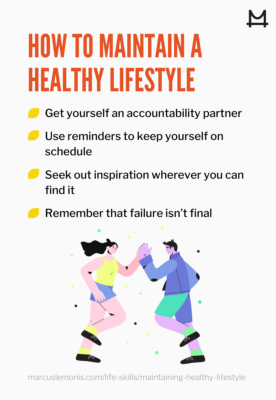
Have you ever looked at someone in their older years and said to yourself, “Wow, they look amazing!” Chances are, they didn’t arrive at such a healthy state by accident.
Most people would say they want to live a long and healthy life, yet the way we live in our modern society doesn’t always prioritize the healthy part of the equation. Life tends to ask a lot from you on an everyday basis, and sometimes health becomes something you’ll “just tackle later.” Truth is, the earlier you set yourself up with a healthy lifestyle, the better chance you have of making it to your golden years with less worries, stress and physical and medical conditions or complications.
The real fountain of youth lies in maintaining a healthy lifestyle and starting early.

Prioritizing your health opens the door to good habits that can pay major dividends down the road, potentially avoiding chronic medical conditions such as high blood pressure, heart disease, diabetes, arthritis, depression, anxiety and many more. Fine-tuning your body and mind results in better overall physical and mental health, which increases your energy and likely your overall well-being, one good habit at a time. Consult with your doctor prior to making any changes to make sure that they’re right for you.
Ready to dive in? Here are some of the most important building blocks to maintaining a healthy lifestyle and making the most of what your body and mind can do each day.

Exercise
Time to get moving…literally! It’s a well-known fact that exercising is key to maintaining a healthy lifestyle. You might already do a lot of moving and exercise, and if so, great! Keep it up! If you’re looking to get started and make activity a bigger part of your daily routine, starting small by doing something you enjoy is the easiest way to build consistency.
For some, it’s as simple as going for a dip in the pool, going for a walk with your favorite four-legged friend, or even taking a few trips up and down some stairs.
For others it can be cycling, running, lifting weights, martial arts, CrossFit, High Intensity Interval Training (HIIT), yoga, Pilates, or even a cardio dance class like Zumba.

Whatever type of exercise you choose, the key to reaping the benefits is making it a regular part of your routine. Experts generally agree that doing at least some activity every single day is the way to go. If you’re brand new to exercise, a good starting point may be by doing some light exercise two days a week, and working up over time to being able to do 30 minutes of moderate exercise five or six days a week, making sure to give yourself plenty of rest in between workout days if you need it.
Some other great side effects of moving your body are: craving healthier foods, noticing an increase in energy and flexibility, and even improvements in mood throughout the day and in quality of sleep at night.
Thanks to a release of endorphins, natural feel-good chemicals the body releases when you exercise, you’ll probably start realizing that your body is actually asking for you to get up and get going. Make it happen!

Healthy Diet
An apple a day keeps the doctor away, right? Well, something like that. While this phrase isn’t 100% accurate, it’s hinting at something important: the way you eat plays a big part in maintaining a healthy lifestyle. Making even small changes to the way you nourish your body helps to make a great impact on your overall wellness. It goes hand in hand with exercise, since getting the most from your workouts means fueling your body the right way.
First, take a look at your daily diet: what are you eating and when are you eating it? Are there times when you’re feeling groggy and slow after eating? It could be that you’re eating too much, or eating higher amounts of sugars or fats than your body needs. Smaller, more frequent, higher quality meals can help.

You want to make sure all your meals have the adequate amount of lean protein, healthy carbs, and healthy fats. Eating enough fruits and veggies will provide some necessary fiber, as well as important vitamins, minerals and other beneficial substances like antioxidants.
Keep an eye on portions, since too many calories at once may contribute to extra energy being stored as fat. Keep your sugars, fats and higher calorie foods to a minimum and increase your portions of healthy protein, fruits, vegetables, and fiber.
Keep in mind that you want to eat to feel satisfied, not to feel full. Chewing your food thoroughly makes digestion easier, and allows your stomach time to send the “I’m full” message to your brain, which can take up to 20 minutes. Also, make sure to focus on eating while you’re doing it; getting distracted by something else is a surefire way to overeat.
Remember, this is NOT about “dieting,” (which is more of a fad or temporary change.) This is about changing the kinds of things you eat for the better and for good. You might consider asking around for a recommendation to consult with a dietitian. Even making small changes like switching soda for flavored sparkling water can make a big difference, and a quality, nutritious diet over the long term helps to keep you in good shape for years to come.

Hydration
Water is so important that, while the body can go without food for up to several weeks in extreme situations, it can only last for a few days without water. Good old H2O affects every cell and function in our bodies, and so making sure that you have enough every day is vital to maintaining a healthy lifestyle. Not to mention, a drink of water can invigorate you, boost your energy levels and even satiate a desire for a snack. You can begin every day with a tall glass of water to start reversing dehydration that builds up while you sleep.
You’ve probably heard that everyone should drink eight glasses of water at eight ounces each every day, however this number really should be a starting point. Depending on your activity level, or how much time you spend outdoors or in heated or humid environments, you may need to drink quite a bit more. There are several ways to track how much water you drink on a daily basis, such as an app on your smartphone, or reusable water bottles or jugs with markings to show you how much water you’ve had throughout the day. Using these, you can experiment with your water intake and choose what you feel is right for you.

Sleep
Even if you’re doing everything else right, maintaining a healthy lifestyle is pretty impossible if you’re not getting the right amount of sleep every night. Being deprived of sleep is a pretty big problem in our society, and researchers are discovering more and more that it plays a huge role in chronic health problems later in life due to a flood of stress hormones your body releases to compensate for exhaustion. Fatigue also affects your alertness, ability to pay attention and perform well at tasks, and your body’s ability to repair itself, among other things.
How can you make sure you’re getting enough sleep? Most doctors recommend a minimum of seven hours of quality sleep every night. The time you spend sleeping isn’t the only important thing, though.

You can make sure you’re getting the rest your body needs in a few ways. First, experts agree that going to bed and waking up at the same time every day helps greatly to get your body used to regular sleep patterns. Also, avoiding bright lights (such as your TV, computer and phone!) for an hour before hitting the sack helps to send signals to your brain that it’s time for sleep, as do having the same pre-bed routines every night. Making your room as dark as possible, minimizing disturbances, and having a quality mattress can also make a big difference.
Not sure if you’re getting the deep sleep you’re after? There are a variety of options out there for tracking your sleep patterns, including apps for your smartphone and wristband devices. Getting those z’s is a surefire way to feel your best and elevate your other healthy habits to their maximum potential benefit!

Meditation and Mindfulness
Want to know what Fortune 500 CEOs, professional athletes, and even members of the military have in common? They’re all a part of the growing group of individuals who are starting to realize the power of meditation. There are many different forms of quieting the mind, from yoga, to guided visualization, to prayer. Whatever type speaks to you, even something as simple as a few minutes of doing nothing but sitting quietly and using your senses to experience the world around you has been shown to help stress levels plummet and put some pep back in your step.
While it’s often overlooked, mindfulness is important to maintaining a healthy lifestyle because of the perspective it provides. Mindfulness means living in the moment, not worrying about what has happened in the past, or what might happen in the future. When you’re being mindful, you’re being present to deal only with what’s going on in the now. In this way, handling whatever is on your plate becomes that much easier.


Building On Your Progress
Starting on your journey to a healthier you is going to feel great! But what’s going to feel even better is making sure that you turn changes into habits. Maintaining a healthy lifestyle isn’t just about starting something new—it’s about seeing it through long term. Put a plan in place to make sure the changes stick!

Get yourself an accountability partner that will go on this journey to better health along with you so you can keep each other on track.
Use reminders to keep yourself on schedule and so you won’t forget to include your new changes in your routines until they become habits.
Seek out inspiration wherever you can find it, whether it be from mentors, family and friends, books, programs or social media accounts. Go heavy on the positivity!
Above all, remember that failure isn’t final! Maintaining a healthy lifestyle is a journey, complete with steps backward and steps forward alike. Losing a little progress or returning to old habits doesn’t mean all is lost; what’s important is to stay on the path towards a better you, and always remembering to make your health a priority.


- What do you currently do to maintain a healthy lifestyle?
- What tips from above are you planning to use to better maintain your healthy lifestyle?





